So, you've got this amazing talent for making handmade soaps, and now you're thinking about turning it into a thriving business. How exciting! But hold on a sec—before you dive headfirst into the world of entrepreneurship, there are a few things you need to know.
Selling handmade soaps in the UK and Europe isn't just about making beautiful products—it's also about understanding the market and navigating through the regulations. We'll walk you through the key basics of getting your soap business successfully set up, all while making sure you're following the rules.
How to sell handmade soaps
1. Get to grips with the UK and EU regulations
While we're eager to jump into the fun aspects of branding and marketing, understanding and adhering to these regulations is key to setting a solid foundation for your business.
It's a bit like preparing a perfect soap recipe—a little caution now can prevent a lot of trouble later, ensuring your business bubbles up successfully without any legal hiccups.
UK cosmetic regulations
When selling handmade soaps in the UK, it's crucial to comply with the specific regulations set out for cosmetics. These regulations ensure that your products are safe for consumer use and meet the required legal standards. Here's a quick rundown of key points you need to be aware of:
- Safety Assessment: All cosmetic products must undergo a safety assessment by a suitably qualified cosmetic chemist. This means your soaps are safe for use and meet the regulatory requirements.
- Product Information File (PIF): You must maintain a Product Information File for each product. This file should include information about the product formulation, safety assessment, and manufacturing process.
- Good Manufacturing Practice (GMP): Your production process must adhere to Good Manufacturing Practice, ensuring products are consistently produced and controlled to quality standards.
- Labelling Requirements: Labels on your soaps must include specific information such as ingredients, the date which the cosmetic product can be used until, contact details of the responsible person or company, etc (see the official regulations below for a full rundown).
- Allergen Declaration: If your soaps contain allergens, these must be clearly declared on the label.
- Ban on Animal Testing: As per UK regulations, cosmetics and their ingredients must not be tested on animals.
- Notification: Before placing your products on the market, you must notify the relevant authorities about your product details.
For a more comprehensive understanding and to ensure full compliance, familiarise yourself with the GOV.UK’s official regulations of selling cosmetics in Great Britain (Northern Irish makers should follow this link and click on the section dedicated to them). Staying informed and compliant with them is not just a legal necessity but also a way to build trust and credibility with your customers.
EU cosmetic regulations
For our friends based in Ireland or further afield in Europe, there are some different regulations that you need to know about. Here's a snapshot of what you need to keep in mind:
- Compliance with EU Cosmetic Regulation (EC) No 1223/2009: This is the cornerstone of cosmetic regulation in the EU. It ensures that all cosmetics, including your handmade soaps, are safe for consumer use.
- Safety Assessment: Similar to the UK, each cosmetic product in the EU must undergo a thorough safety assessment. This assessment must be conducted by a suitably qualified cosmetic chemist.
- Product Information File (PIF): You're required to maintain a comprehensive Product Information File for each type of soap you sell. This file should include details on formulation, safety assessment, and manufacturing process.
- Labelling in Multiple Languages: Given the diversity of the EU, your product labels must cater to the specific language requirements of each member country where your soap is sold.
- Allergen Declaration: EU regulations demand clear labelling of allergens, particularly important for products like soaps which come into direct contact with the skin.
- Strict Restrictions on Ingredients: The EU has stringent rules on what ingredients can be used in cosmetics. Ensure your soaps comply with these ingredient restrictions.
- CPNP Notification: Before placing your soaps on the EU market, you must notify the Cosmetic Products Notification Portal (CPNP) with details of your products.
For a detailed guide and to ensure you're completely in the clear, refer to the CBI Ministry of Foreign Affairs’ comprehensive resource on ‘Entering the European market for soap’.
2. Craft your signature soap recipe

Now the paperwork is out of the way, it’s time to talk about the fun part. Going from a hobbyist to an entrepreneur means nailing down the ingredients you’ll stick to for your signature soap line.
Start by finding a melt and pour base that works for you. White SLS-free bases can be great if you’re looking to make your soap line stand out with vibrant colours, while a goat’s milk alternative works for those who want to champion their soap brand as a natural, sustainable business.
Moving on from the blank canvas, the choice of fragrance is a key element in defining the character of each bar. From soothing lavender to energising citrus, each scent can set a distinct mood and appeal. The final touch? Ingredients like oatmeal for exfoliation or honey for moisture can add unique qualities to your soap.
These are just a handful of ideas to get you brainstorming, but there are countless melt and pour soap recipes online for inspiration. When coming up with yours, each choice represents an opportunity to create products that are both a delight to use and a true representation of your brand’s character.
3. Develop your soap brand identity
Your soap brand identity is more than just a name and logo; it's the story your product tells. Think about what makes your soaps special—is it the local ingredients, handmade process or perhaps a unique ethical approach? Your brand should reflect these qualities.
Choose a name and design that speaks to your target audience and convey your brand's essence. Consider how you package and present your soaps; this is often the first physical interaction customers have with your brand. Make it memorable and true to what your brand stands for. Authenticity in your brand's story and presentation will resonate with customers and help build a loyal following.
4. Package your soap for success
Packaging is more than just wrapping; it's another key aspect of your brand story. For soaps, the packaging should protect and preserve the product, while also making a strong visual impact. Consider eco-friendly options like biodegradable wrappers or recyclable boxes, aligning with a sustainability ethos.
Use labels and designs that reflect your brand's personality, whether minimalist for a luxe look, rustic for a homemade feel or colourful for an energetic vibe. The right packaging can elevate the perceived value of your soaps, making them not only functional but also giftable, enhancing the overall customer experience.
5. Choose the right sales channels for your soaps
Selecting the right sales channels is crucial for reaching your target audience. Online platforms like Etsy, Shopify, Amazon or your own ecommerce website can offer a broad reach, while local craft fairs and farmers' markets allow for a more personal connection with customers. You can also consider boutique stores or natural health shops in your local area for a more targeted approach.
Each channel offers different benefits, from wider audience reach online to the personal engagement of face-to-face sales. Understanding where your target customers shop and how they prefer to purchase is key to making your soaps accessible and successful in the market.
6. Market your soaps effectively
Marketing your soaps isn't just about stocking the shelves; it's about shouting from the rooftops and letting the world know they're there (and, more importantly, how great they are).
Online, leverage social media platforms like Instagram and TikTok, where visuals of your soaps can attract a broad audience. Use hashtags, run targeted ads and engage with followers through stories and posts. Consider creating DIY or behind-the-scenes videos to build a connection with your audience.
Offline, participate in local events and collaborate with local businesses for cross-promotion. Offering samples can also be a great way to attract new customers. Remember, consistency in your messaging across all platforms is key to building a strong brand presence.
7. Price your soaps for profitability

Let’s talk about money. Although you’d happily make soaps for the sheer joy of it, you deserve to reap the rewards of your craft! Pricing your soaps is more than just covering costs, so don’t forget to take into consideration all of your hard work behind the scenes.
First things first, start by calculating the cost of materials per unit, including the base, fragrances, colours and packaging. Add labour costs, considering the time spent on each soap. Don't forget overheads like utilities, marketing and any rental fees. For example, if the total cost per soap is £2, you might set a wholesale price at £4 (doubling your cost) and a retail price at £6-£8, ensuring a fair profit margin.
Research competitors' pricing to ensure you're in line with the market, and think about offering tiered pricing for larger quantities as it can attract a wider range of customers. Remember, pricing can always be adjusted as you grow and learn more about your market and customer base.
Turning bubbles into business success
As we come to the end of this guide on how to sell handmade soaps, remember that building a successful business is a blend of art, science and strategic thinking. From crafting unique recipes to captivating marketing and smart pricing, each step is a crucial ingredient in your recipe for success.
Embrace the creativity and passion that brought you here, and pair it with the practical business acumen shared in this guide. Your journey from a humble soap maker to a thriving entrepreneur is not just about selling soap; it's about sharing a piece of your story and passion with every bar.


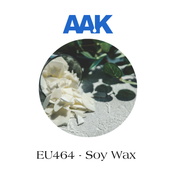
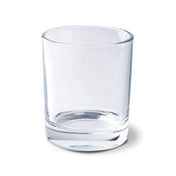
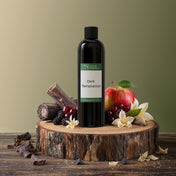
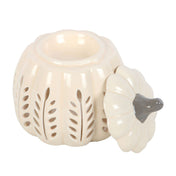
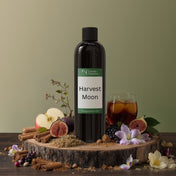
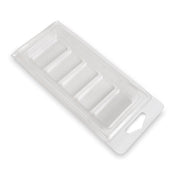


7 comments
hey, I would like to make melt and pour base soaps, mainly glycerin ones, with different colours and frangrance of course. And lip balm., Candles and wax melts. Where should i really start with this? I am UK based, will sell in UK, i do not have website yet, I am not a self employed or either does not have a company. am I able to sell them for individuals via ebay, or any another platforms? Or at least i have to be a self employed?
———
NI Candle Supplies LTD replied:
Thanks for your comment, Krisztina. You should be able to sell to individuals via eBay, however you will still be required to undertake a cosmetic assessment for any products you intend to sell. The assessment will need to have been approved before you can start selling anything. We would suggest contacting a registered assessment agent for support on this, as this is not something we can assist with.
IMPORTANT: The contents of this email and any attachments are confidential. They are intended for the named recipient(s) only. If you have received this email by mistake, please notify the sender immediately and do not disclose the contents to anyone or make copies thereof.
Am thinking of selling a make you own soap kit. Consisting of already approved products on the market. Do I need to carryout any assessments/regulations?
———
NI Candle Supplies LTD replied:
That’s a great question Lisa! As we are not cosmetic assessors, it is not something we can answer directly. We’d suggest reaching out to https://mafcosmetic.co.uk/ for guidance on this point.
Thank you so much for the information . So helpful.
Hiya I want to start selling my amazing homemade turmeric soap, is there a way you can approve my product ?
———
NI Candle Supplies LTD replied:
Thanks for your comment. We are not licensed to assess products for sale, you would need to contact a reputable cosmetic assessment company who can assist with the process to approve your soap for sale. We hope that helps and wish you all the best with the launch!
Rather than push a platform that takes a large cut (fiverr takes 20%) you can create and reserve your own brand on free ecommerce sites like freewebstore.com and link them to other places such as social networking platforms. They have loads of free templates that require no professional website building experience. You can run a small business also known as a side hustle in the UK which gives you the simplicity of both selling online or offline. Many do the automatic stock control for you. If you create a brand it leaves your options open in case your side hustle exceeds £1000 profit after accounting for expenditure.
I need help setting up a website. I’m in my late 50s and not very techy😅
I have looked at shopify but I’m bamboozled!
Many thanks
X
———
NI Candle Supplies LTD replied:
Thanks for your comment Soap Ocean! Setting up a website can be a daunting process, we would suggest popping onto Fiverr to engage the services of a web development whizz – there are some very cost effective options on there that will see you set up in no time at all :)
Warm
I live in the UK. I am planning to do small-scale g
Homemade soap business. I need some advice on how to sell the soap online even offline. Do I need to get a cPSR certificate and license? Kindly give me some advice.
———
NI Candle Supplies LTD replied:
Thanks for your comment Karthika. We would suggest reading over the paragraph on UK Cosmetic Regulations above and clicking through to the link for the UK Government’s official regulations, as these also apply to soap making. We would also advise contacting a suitably qualified Cosmetic Chemist for further support, as you they are best equipped to guide you through the process and ensure your products comply with the legislation.